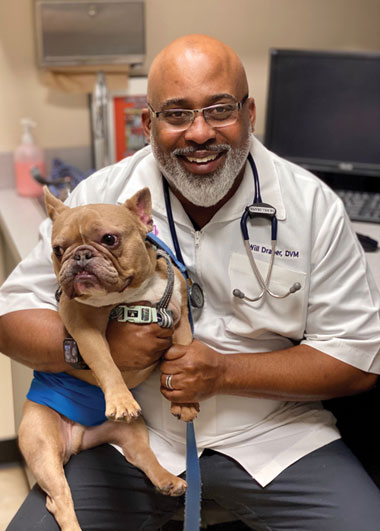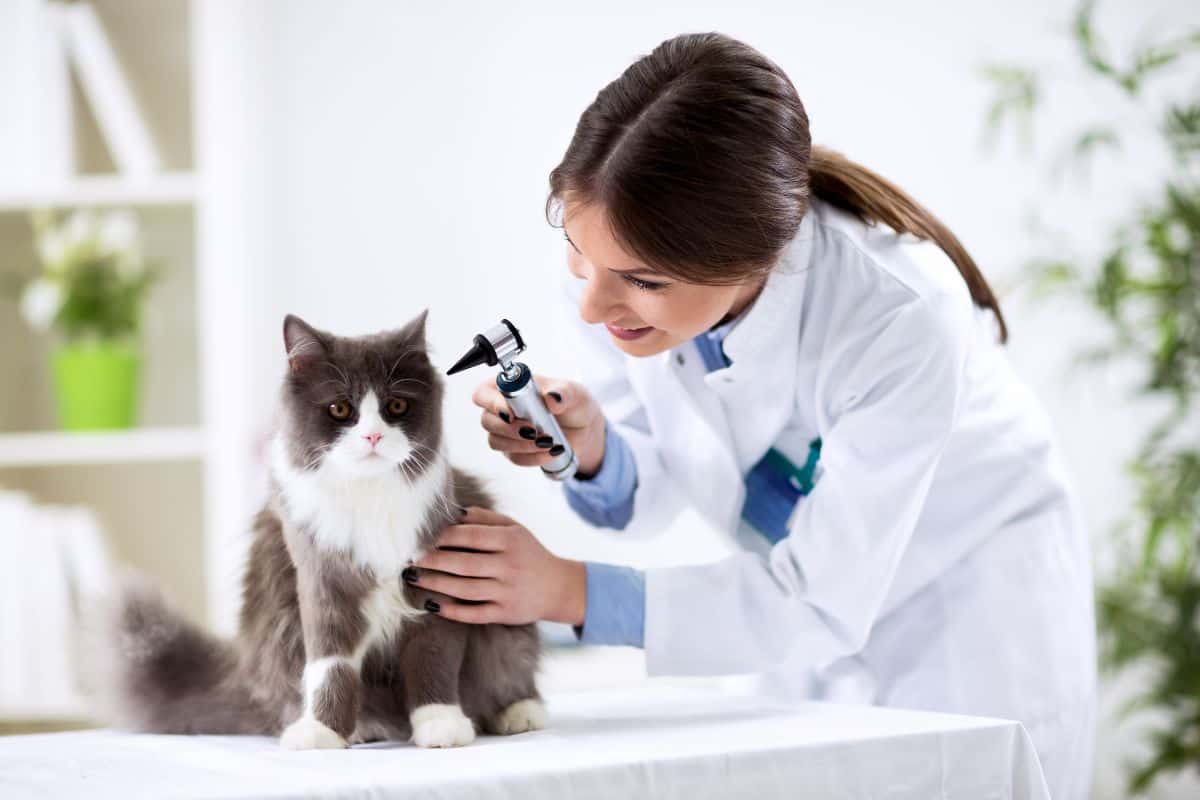Veterinary Oncology Services versus general veterinary care for cancer patients
Wiki Article
Comprehensive Guide to the Services Used by a Veterinary Oncologist
Vet oncology encompasses a broad range of solutions targeted at identifying and treating cancer in family pets. Veterinary Oncology Services. Oncologists utilize sophisticated diagnostic strategies and offer numerous treatment choices customized to every animal's needs. They additionally focus on helpful treatment and provide important sources for pet proprietors. Comprehending these solutions is necessary for making informed decisions. What details facets of vet oncology can notably impact a pet's therapy journey?Understanding Vet Oncology
Vet oncology is a specialized field concentrated on detecting and treating cancer in pets. This self-control incorporates a variety of methods, from medical therapies such as chemotherapy and immunotherapy to medical treatments focused on eliminating growths. Veterinary oncologists are trained to identify the distinct indications of cancer cells in numerous types, enabling them to customize treatment strategies to private people.Along with standard therapies, veterinary oncology highlights supportive treatment, which plays an essential duty in boosting the lifestyle for affected pets. This consists of discomfort management, dietary support, and palliative care alternatives. Partnership with pet dog owners is essential, as they are important to decision-making regarding their family pets' therapy paths. As research advancements, veterinary oncology proceeds to develop, offering brand-new hope and improved outcomes for pet dogs detected with cancer. Overall, this field is basic for attending to the intricacies of cancer in buddy pets.
Advanced Diagnostic Techniques
Advanced analysis methods play a vital function in veterinary oncology, offering crucial understandings right into the visibility and degree of cancer in animals. Imaging methods such as ultrasound, CT scans, and MRI are frequently utilized to imagine tumors and analyze their attributes. Additionally, biopsy treatments are very important for acquiring tissue examples, permitting clear-cut diagnosis and tailored treatment strategies.Imaging Modalities Utilized
Imaging techniques play an important function in the diagnosis and management of cancer in pets. Veterinary oncologists make use of different advanced imaging techniques to evaluate tumor transition, dimension, and existence. Radiography, or X-rays, provides an initial view of bone and breast conditions, while ultrasound supplies real-time imaging of soft cells, enabling for thorough examination of inner body organs. Calculated tomography (CT) boosts visualization of complicated anatomical structures and enables 3D repairs, assisting in specific growth localization. Magnetic vibration imaging (MRI) is important for soft cells differentiation, especially in brain tumors. In addition, nuclear medicine methods such as positron discharge tomography (PET DOG) aid recognize metabolic task within growths. Collectively, these techniques boost diagnostic precision, guiding efficient treatment techniques for oncological individuals.Biopsy Procedures Clarified
Adhering to the first analysis via imaging techniques, acquiring a clear-cut diagnosis commonly requires cells tasting through biopsy procedures. Veterinary oncologists utilize different biopsy techniques based upon the growth's place and qualities. Great needle desire (FNA) is a minimally invasive approach that removes cells for cytological assessment, suitable for surface masses. Core needle biopsies offer bigger cells samples and work for deeper tumors, permitting histopathological evaluation. Surgical biopsies entail excising a section or the whole growth, facilitating extensive analysis. These treatments not just validate the presence of cancer cells yet also help establish its kind and quality, leading treatment choices. Each biopsy approach is chosen carefully to stabilize analysis precision with person safety and convenience.Therapy Alternatives for Cancer in Pets
When a pet dog is detected with cancer, a range of therapy alternatives appear to aid boost and manage the condition top quality of life. Vet oncologists commonly suggest a multidisciplinary strategy customized to the private family pet's requirements, which might include surgical treatment, radiation therapy, immunotherapy, or alternate treatments.Surgery is commonly used to remove tumors and damaged cells, potentially bring about total remission in some situations. Radiation therapy aims to ruin and target cancer cells, minimizing tumor dimension and easing symptoms - Veterinary Cancer Specialist. Immunotherapy uses the animal's immune system to combat cancer cells more properly, while different therapies might consist of acupuncture or herbal supplements to support total health
Each therapy alternative lugs its own advantages and threats, and veterinary oncologists function closely with family pet owners to create a thorough plan that aligns with the family pet's specific medical diagnosis and the proprietor's dreams. The best objective is to boost the family pet's convenience and top quality of life throughout their cancer cells journey.
Chemotherapy for Pets
Radiation treatment is a common treatment option for pet dogs diagnosed with cancer and is commonly made use of in conjunction with various other treatments detailed by veterinary oncologists. This therapy entails the administration of particular medications created to ruin and target cancer cells, thereby minimizing growth size and protecting against the spread of the disease. Vet oncologists tailor radiation treatment methods based upon the kind of cancer, the pet dog's overall wellness, and the desired treatment outcome.Adverse effects can occur, as these medicines might likewise impact healthy and balanced cells. Common reactions include nausea or vomiting, throwing up, and short-lived adjustments in hunger - Pet Cancer Surgery. Vet oncologists are equipped to manage these adverse effects effectively, ensuring the pet's convenience throughout the treatment procedure. Normal tracking via blood examinations and follow-up appointments is important to assess the pet dog's feedback to radiation treatment and make essential adjustments. Eventually, radiation treatment can give considerable benefits, boosting the lifestyle for animals dealing with cancer medical diagnoses

Radiation Therapy in Vet Medicine
Radiation treatment functions as an efficient treatment alternative for pets detected with local growths, providing a targeted technique to cancer management. This strategy uses high-energy radiation to harm the DNA of cancer cells, inhibiting Pet Cancer Surgery their capability to multiply. It is specifically useful for growths that are not amenable to surgical elimination or for situations where surgical procedure might not be practical due to the growth's location.Veterinary oncologists customize radiation methods based upon growth area, type, and dimension, along with the pet dog's overall health. Treatment can be provided by means of exterior beam of light radiation or brachytherapy, each with distinctive advantages. Generally, multiple sessions are called for to make the most of efficiency while lessening negative effects.
Although family pets might experience short-term responses such as skin irritability, the total objective is to shrink tumors and reduce signs, eventually boosting the pet's prognosis and lifestyle. As necessary, radiation treatment plays a vital function in extensive cancer care.
Palliative Care and Lifestyle
Palliative treatment in veterinary oncology concentrates on boosting the lifestyle for pet dogs encountering incurable diseases, making sure convenience and dignity in their last days. This specific technique prioritizes discomfort monitoring, signs and symptom control, and emotional assistance. Veterinary oncologists assess each animal's specific demands, tailoring treatments to reduce pain and improve overall well-being.Techniques might consist of carrying out drugs for discomfort alleviation, managing nausea, and resolving other distressing signs and symptoms. In addition, dietary support is usually provided to maintain stamina and improve cravings. The psychological element of palliative care is just as crucial; producing a calm setting helps decrease stress and anxiety for both family pet and proprietor.
Ultimately, the goal of palliative treatment is to enable pets to enjoy their continuing to be time with as much happiness and self-respect as possible. By concentrating on comfort and high quality of life, veterinary oncologists play an important duty in ensuring that animals and their family members browse this difficult trip with compassion and understanding.
Support for Pet Owners During Treatment

Emotional Assistance for Owners
Charting the psychological landscape throughout an animal's cancer therapy can be a frustrating experience for proprietors. The uncertainty bordering diagnosis and prognosis can result in sensations of anxiousness, helplessness, and sadness. Vet oncologists acknowledge the relevance of emotional assistance and usually provide support to assist proprietors navigate this tough trip. Interaction is important; talking about treatment options and prospective outcomes can alleviate some worries. In addition, offering peace of mind that emotional reactions stand fosters a supportive environment. Lots of oncology clinics may likewise suggest support groups or therapy services tailored for pet owners, facilitating common experiences. Urging owners to focus on self-care during this time around is vital, as their psychological well-being straight influences their family pet's convenience and overall treatment experience.
Resources and Educational Materials
Steering through the intricacies of a pet dog's cancer cells treatment can be frightening for proprietors, making access to educational products and reliable resources necessary. Veterinary oncologists frequently supply a range of handouts, pamphlets, and online products that discuss treatment options, potential negative effects, and treatment strategies. These resources aid debunk the process and empower family pet proprietors to make educated decisions. Furthermore, many oncology centers supply accessibility to sustain groups and online forums where proprietors can get in touch with others facing comparable obstacles, cultivating a sense of area. Educational seminars and webinars conducted by vet specialists further boost understanding, making sure that owners are well-appointed to browse their family pet's trip with cancer therapy with self-confidence and expertise.Regularly Asked Inquiries
Exactly How Can I Prepare My Pet for a Vet Oncology Go To?
Preparing a pet for a vet oncology browse through includes event clinical records, keeping in mind symptoms, and making sure the family pet is comfortable. A calm temperament and familiar things can aid ease anxiety throughout the appointment.What Are the Signs My Pet May Have Cancer Cells?
Indicators that a pet might have cancer include unusual fat burning, consistent vomiting or looseness of the bowels, uncommon swellings or swellings, sleepiness, modifications in hunger, trouble breathing, and modifications in actions. Motivate vet focus is important.How Can I Assistance My Family Pet Mentally During Treatment?
Supporting a family pet psychologically throughout treatment involves providing comfort, keeping routines, providing mild affection, and making sure a calm environment. Engaging in silent play and regular companionship helps relieve stress and fosters a sense of safety.Exist Alternative Treatments for Pet Dogs With Cancer?
Different treatments for pets with cancer consist of acupuncture, organic therapies, and nutritional assistance. These approaches may enhance traditional therapies, promoting overall well-being. Consulting with a veterinarian is vital for secure and efficient assimilation of alternate treatments.What Prices Should I Expect for Veterinary Oncology Services?
The awaited prices for veterinary oncology solutions can differ substantially, usually influenced by diagnostics, therapies, and ongoing care. Pet dog owners should plan for costs ranging from appointments to specialized treatments, mirroring the intricacy of cancer management.Cooperation with pet dog owners is critical, as they are important to decision-making regarding their pet dogs' therapy courses. Each therapy alternative brings its own benefits and dangers, and vet oncologists function closely with family pet owners to create an extensive strategy that straightens with the family pet's certain diagnosis and the owner's desires. Pets might experience short-term responses such as skin irritation, the overall aim is to shrink lumps and reduce signs, ultimately boosting the family pet's diagnosis and quality of life. Support for pet owners throughout treatment is vital in guiding through the emotional obstacles linked with a pet's cancer cells medical diagnosis. Preparing a pet for a veterinary oncology check out entails gathering clinical documents, keeping in mind signs and symptoms, and making certain the animal is comfy.
Report this wiki page